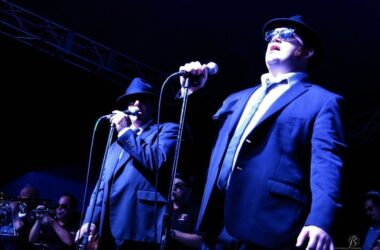OREGON–(ENEWSPF)–December 24, 2016

Detail from Bartolomé Esteban Murillo’s “Adoration of the Magi” Source: Google Art Project
Every Christmas Eve, as our family gathered together around the tree we would sing carols. My mom’s contribution was to sing “O Holy Night” in French, which she had learned at Girl’s High in Philadelphia as a teenager. She knew all the verses. I didn’t know French at the time, and never realized that in the translation by John Sullivan Dwight part of what she sang was:
Truly He taught us to love one another;
His law is love and His gospel is peace.
Chains shall He break for the slave is our brother;
And in His name all oppression shall cease.
Here is the great Enrico Caruso singing in French “Cantique de Noël” also known as “Minuit Chrétiens.”
He recorded it in 1916 and it was “the only Christmas song recorded by Caruso.”
Placide Cappeau’s Cantique de Noël with the verse including slavery:
Le Rédempteur
A brisé toute entrave:
La terre est libre et le ciel est ouvert.
Il voit un Frère où nétait quun esclave;
Lamour unit ceux quenchaˆnait le fer.
Qui Lui dira notre reconnaissance?
Cest pour nous tous quIl naˆt,
QuIl souffre et meurt.
Peuple debout,
Chante ta délivrance!
Noël! Noël!
Chantons le Rédempteur!
Noël! Noël!
Chantons le Rédempteur!
The recorded versions we played as part of our holiday music celebration did not include the full version. The performers would sing the first verse, and then repeat the refrain, or first verse more than once. It wasn’t until recently that I learned the full history of the song and those who were involved with it:
In 1847, Placide Cappeau de Roquemaure was the commissionaire of wines in a small French town. Known more for his poetry than his church attendance, it probably shocked Placide when his parish priest asked the commissionaire to pen a poem for Christmas mass. Nevertheless, the poet was honored to share his talents with the church. In a dusty coach traveling down a bumpy road to France’s capital city, Placide Cappeau considered the priest’s request. Using the gospel of Luke as his guide, Cappeau imagined witnessing the birth of Jesus in Bethlehem. Thoughts of being present on the blessed night inspired him. By the time he arrived in Paris, “Cantique de Noel” had been completed. Moved by his own work, Cappeau decided that his “Cantique de Noel” was not just a poem, but a song in need of a master musician’s hand. Not musically inclined himself, the poet turned to one of his friends, Adolphe Charles Adams, for help…As a man of Jewish ancestry, for Adolphe the words of “Cantique de Noel” represented a day he didn’t celebrate and a man he did not view as the son of God. Nevertheless, Adams quickly went to work, attempting to marry an original score to Cappeau’s beautiful words. Adams’ finished work pleased both poet and priest. The song was performed just three weeks later at a Midnight Mass on Christmas Eve. Initially, “Cantique de Noel” was wholeheartedly accepted by the church in France and the song quickly found its way into various Catholic Christmas services. But when Placide Cappeau walked away from the church and became a part of the socialist movement, and church leaders discovered that Adolphe Adams was a Jew, the song–which had quickly grown to be one of the most beloved Christmas songs in France–was suddenly and uniformly denounced by the church. The heads of the French Catholic church of the time deemed “Cantique de Noel” as unfit for church services because of its lack of musical taste and “total absence of the spirit of religion.” Yet even as the church tried to bury the Christmas song, the French people continued to sing it, and a decade later a reclusive American writer brought it to a whole new audience halfway around the world.Not only did this American writer–John Sullivan Dwight–feel that this wonderful Christmas songs needed to be introduced to America, he saw something else in the song that moved him beyond the story of the birth of Christ. An ardent abolitionist, Dwight strongly identified with the lines of the third verse: “Truly he taught us to love one another; his law is love and his gospel is peace. Chains shall he break, for the slave is our brother; and in his name all oppression shall cease.” The text supported Dwight’s own view of slavery in the South. Published in his magazine, Dwight’s English translation of “O Holy Night” quickly found found favor in America, especially in the North during the Civil War.
I’ve now listened to more versions of “O Holy Night” than I can count—and found very few with the full version.
Celtic Woman perform the entire piece.
Enjoy.
Source: http://dailykos.com








